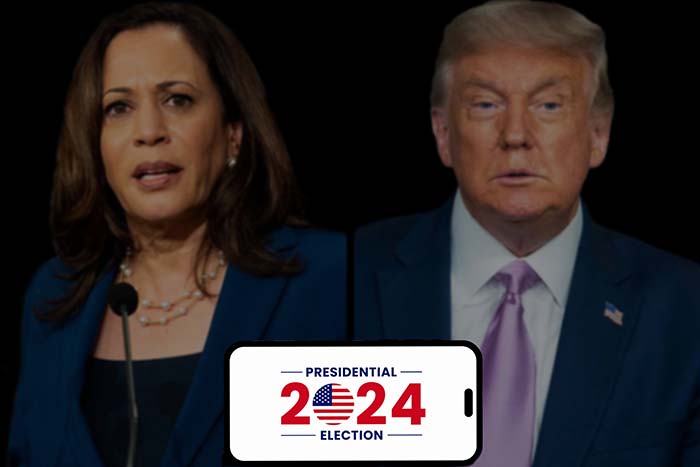We’re in trouble.
Some of the potential policy decisions coming from our leaders and presidential candidates are so head-scratchingly bad that it’s hard to believe anyone involved was nodding their head in approval and saying, “Good idea!”
Let’s start with Vice President Kamala Harris’ recent suggestion that she would crack down on what she calls “corporate price gouging” on food.
So much for the free market.
Look, I have no problem with the government prohibiting price gouging during a crisis. In Florida, for example, gas stations, hotels, and other providers of essential products and services cannot spike their prices as a hurricane approaches.
But in the normal course of business – assuming there’s no collusion and the market is free – capping prices or margins for food suppliers or grocery stores would only make matters worse.
Who will decide how much a food producer is allowed to make? Will spinach be required to have lower margins than Cocoa Puffs in order to push people toward healthier food? Will food now be regulated like a utility?
Harris’ proposal would reduce the number of suppliers, which would ultimately lead to higher prices, fewer jobs in the industry, and more farmland being turned into condos.
The idea is populist nonsense – and the latest example of a politician pandering to get votes.
But Harris hasn’t cornered the market on bad ideas.
Former President Donald Trump’s proposal to slap a tariff on anything not made in the U.S. is as dumb as it gets. We live in a global economy. Isolationism doesn’t work. That’s been proven over and over.
Importantly, tariffs would also directly result in higher costs for consumers and businesses.
According to the Tax Foundation, Trump’s proposed tariffs would shrink the U.S. GDP by 0.8% and result in the loss of 684,000 full-time jobs. The Peterson Institute for International Economics estimates that they would cost the average middle-income household an additional $1,700 per year.
Speaking of irresponsible fiscal policy, neither candidate has said one word about slowing down spending. (I wrote about the national debt – and our leaders’ reluctance to address it – in detail a couple of weeks ago.)
Then there’s the Fed. I’m in the minority here, but I believe it’d be ludicrous for the Fed to lower rates in September, as nearly everyone expects.
The Fed’s job isn’t to stimulate the housing market, to make things easier for consumers, or to relieve the burden of credit card debt.
Its only tasks are to keep prices stable and ensure maximum employment.
Inflation dipped to a three-year low of 2.9% in July, so prices are much more stable than they were in the aftermath of the pandemic. But inflation is still well above the Fed’s stated goal of 2%.
Furthermore, though employment growth is slowing, it is still positive. The U.S. added 114,000 nonfarm jobs in July, down from the average of 215,000 over the past 12 months. Unemployment rose to 4.3%, but layoffs are not increasing, and the participation rate – the percentage of American adults who either have jobs or are actively seeking employment – was high and is expected to rise further.

Considering that we’re coming out of a high-inflation environment, cutting rates while inflation is above the Fed’s 2% goal and employment is still growing would likely lead to greater inflation down the road.
I’m going to break some shocking news to you: The government doesn’t make decisions in your best interest, regardless of who is in charge.
With that in mind, there are certain steps you should strongly consider taking in order to thrive financially. Here are three of them.
- Own gold. I’m not a gold bug. But gold is a long-term hedge against higher prices, and now more than ever, it belongs in a well-rounded portfolio. Inflation may continue to be tame for the next year, but if rates are lowered artificially and the government keeps up its exorbitant spending, it will rear its head again.
- Own healthcare stocks. In good times, bad times, inflationary times, and affordable times, people get sick, go to the doctor, and consume massive amounts of medication and other health-related products and services. Owning a few recession-resistant stocks like big medical device companies and pharmaceutical/biotech firms should help your portfolio weather some storms. If you can handle the risk, smaller biotech stocks can generate big profits – but keep in mind that they are more speculative.
- Own short- to intermediate-term fixed income. If rates head lower from here, bonds will increase in value, and the income you receive from them will become more valuable as inflation recedes. However, I wouldn’t own long-term bonds, as I expect inflation to return within a few years due to the government’s incompetence (regardless of who wins the presidency). Consider quality bonds with maturities of five years or less.
Politicians and appointees are doing the opposite of what they should, which is to let the free market determine price. It’s not a perfect system, but it’s the most efficient mechanism for getting people what they want and need.
Until our leaders figure that out, your investments will need to offset their blunders.
